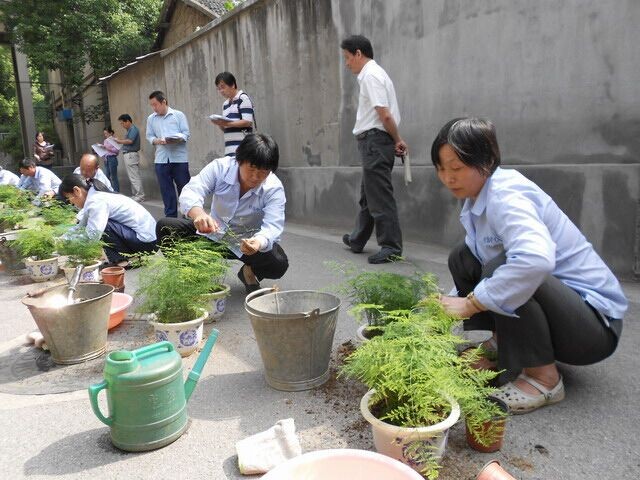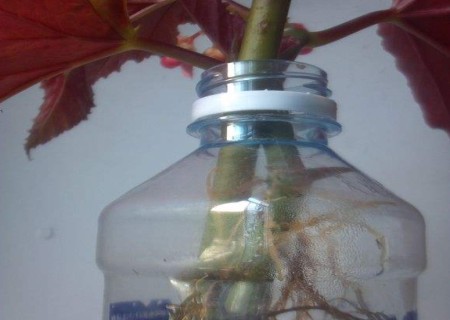Techniques and methods of pruning bonsai pruning and shaping methods of asparagus
Asparagus, everyone is familiar with it, so do you have such a kind of distress? Asparagus is growing so fast that it is ugly with a pile of grass on its head and only a few bare poles below. Everyone wants to trim it, but how can they be willing to cut it when they finally grow up so big? What if it's cut? In short, there are all kinds of concerns!

For asparagus, we mainly take two kinds of pruning methods, one is to prevent it in the early stage, and the other is to prune helplessly.
1. Plastic surgery methods:
1. Pot control method: the ratio of flowerpot to plant size should be 1:3, which can limit the growth of root system and keep the plant size unchanged.
2. Remove the growing point: when the new bud reaches 2~3cm, it can promote the regeneration of branches and leaves on the stem, control its non-growing vines, flatten out the branches and leaves, and make the plant shape plump.
3. Making use of the phototaxis of asparagus: turning the direction of the flowerpot at the right time can modify the growth shape of branches and leaves and keep the plant type unchanged.
4. Object shielding method: that is, using a piece of hard paper to press the branches and leaves or cover the sun, so that when the branches and leaves are growing, the stems will turn or bend when they encounter objects, so as to achieve the purpose of modeling.
2. Pruning methods:
(1) Tower type: choose 3 tall and straight beautiful stems of 2 murmurs as the main peak, remove all the growing points on the stems, and set the plant height as 30 Murray 35 cm. The remaining branches and new stems should not be higher than the main peak. For new buds, the thickness of their stems can be used to determine whether or not to remove the growing point. If the stem is thicker than the main peak, it should be removed, and if it is thinner than the main peak, it is not necessary to pick and let it grow. At the same time, it is necessary to adjust the plant shape continuously by using the object shielding method and its own phototaxis.
(2) double-cluster type: plant two asparagus plants in the basin, about 30 cm high and 18 cm low, and then look like tower asparagus during the growth period.
(3) Natural style: it is mainly the plant type of natural growth of asparagus, and the basic methods such as picking off the growing point, covering and making use of its phototaxis are still used to stretch the branches and leaves and give people a natural sense of beauty.
It should be noted that the shaping of asparagus must be combined with the control of fertilizer and water. That is, at room temperature 15 ℃ and 18 min, water should be watered once a week to keep the basin soil moist (it is appropriate to press with fingers). No fertilizer or less fertilizer.
Asparagus should be changed once a year, increasing year by year, if you do not change the big basin, you can turn the basin to remove part of the small roots, replace the new soil, plant in the original pot, pay attention to the renewal of stems and branches, and remove the aging, sick and residual stems and branches at any time.
- Prev

Methods and matters needing attention of hydroponic culture the method of rapid rooting of bamboo begonia by hydroponic culture
The editor made an inquiry on the Internet, and there are many introductions about the hydroponic culture methods of bamboo crabapple. However, netizens' experience of hydroponic cutting is either not detailed enough, or there are no pictures to help understand. In this way, many friends can not finish the bamboo joint sea successfully.
- Next

The pruning and shaping method of how to trim styled asparagus
Asparagus, everyone is familiar with it, so do you have such a kind of distress? Asparagus is growing so fast that it is ugly with a pile of grass on its head and only a few bare poles below. Everyone wanted to trim it, but it was not easy.
Related
- Wuhan Hospital Iron Tree Blooming Result Was Instantly Frightened by the Gardener Master
- Which variety of camellia is the most fragrant and best? Which one do you like best?
- What is the small blue coat, the breeding methods and matters needing attention of the succulent plant
- Dormancy time and maintenance management of succulent plants during dormancy
- Minas succulent how to raise, Minas succulent plant pictures
- What are the varieties of winter succulent plants
- How to raise succulent plants in twelve rolls? let's take a look at some experience of breeding twelve rolls.
- Attention should be paid to water control for succulent plants during dormant period (winter and summer)
- Watering experience of twelve rolls of succulent plants
- Techniques for fertilizing succulent plants. An article will let you know how to fertilize succulent plants.

